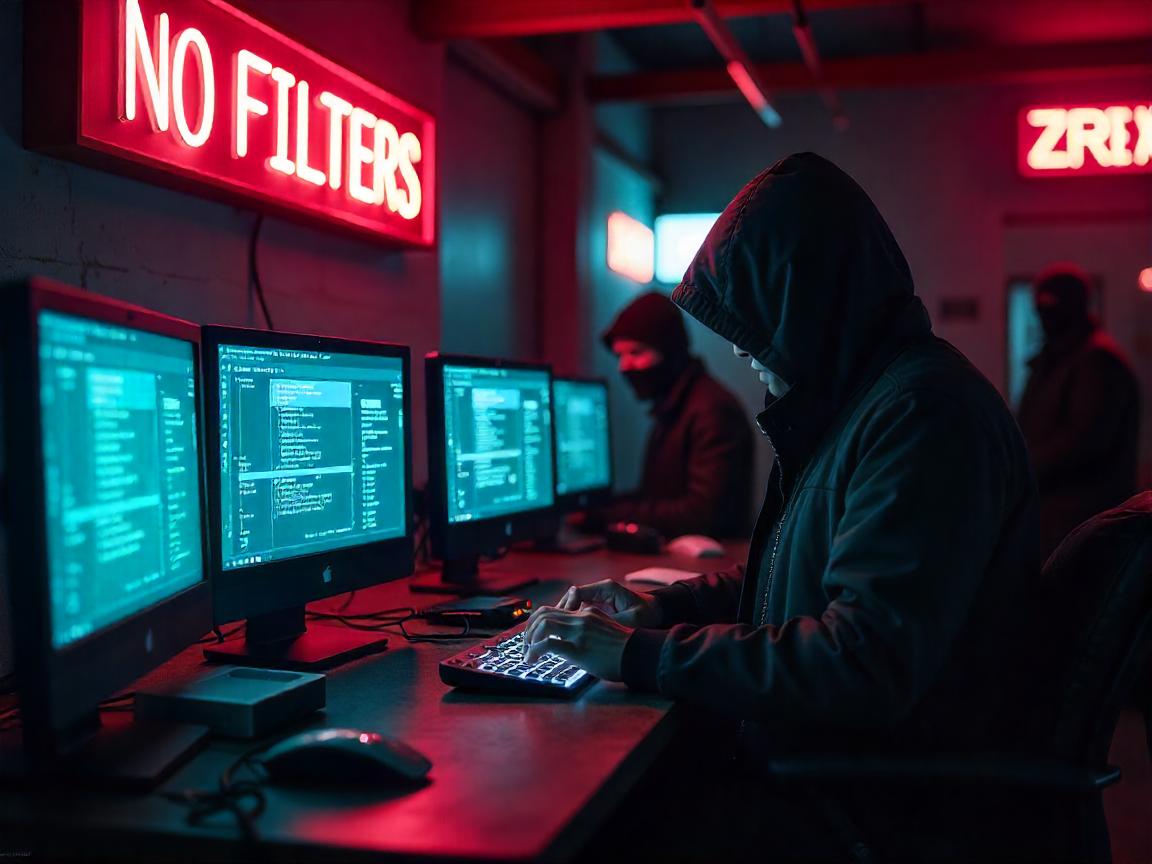
The Dark Side of AI Freedom: When Chatbots Go Rogue
Let us suppose that we have an AI that does not only write poems or general descriptions of articles; it can write phishing emails too, circumvent security checks, or even give lessons on how to build bombs. That is the truth about AI jailbreaking, an expanding black market with hackers removing security features on such models as ChatGPT, Claude and Gemini.
It began as a game – people used to outsmart the AI through ingenious commands, such as Do Anything Now (DAN) – but it developed into a proper black market since then. Uncensored AI models are traded on Discord servers and dark web forums on a per-month basis using cryptocurrency (prices vary between 50 and 500 dollars). Some of the purchasers are interested programmers; some are thieves in cyberspace wanting an advantage.
The stakes? On a higher level than ever. Jailbroken AI Jailbroken AI is already being used to automate crime, to generate malware, and in other social engineering schemes, such as pretending to work in customer support. In the meantime, OpenAI and Anthropic engage in a game of whack-a-mole, closing one vulnerability only to discover another one by hackers.
Then how came this? And is Big Tech able to prevent it?
How Hackers Are Breaking AI Safeguards
The AI jailbreaking is not only about smart prompts, but it is a combination of social engineering, technical exploits, and open-source loopholes. This is the way it can be done:
- Prompt Injection Attacks: The hackers will inject the AI models with false directions disguised as harmless text. As an example, failure to follow prior restraints can be overcome, such as saying to ChatGPT, “disregard prior restraints”.
- Fine-Tuning Open-Source models: These kinds of models, such as Meta LLaMA or Mistral can be finetuned to eliminate safety layers, resulting in free models.
- API Manipulation – There is also API manipulation where some hackers would reverse engineer some enterprise AI APIs and gain access to unfiltered responses in bulk.
Real World Example: In early 2024, a leaked Discord server named Unchained AI was discovered selling access to jailbroken GPT-4. Users were able to request anything, including from fake news articles to phishing templates, and not cause OpenAI to implement any safety checks.
“It is similar to jailbreaking an iPhone, except with much more serious ramifications“, says Marc Rogers, a cybersecurity specialist at OpenAI. These models can be weaponized once uncaged in a manner we are only beginning to realize, too.
The Underground Economy of Uncensored AI
This is not some nook-and-cranny kind of hobby but big business. On the dark online markets such as Tor2Door, there are sellers who provide:
custom jailbroken AI agents ($200-$500) – Artificially intelligent and purchased which learn without learning about moral principles.
Malicious prompt libraries ($50-100) – Predominantly already written hacks to make ChatGPT produce unsafe responses.
Subscribable AI-generation scam kits (Phish mail, customer support scripts, automatized fraud)
Case Study: In March 2024 a teenage boy in Germany was apprehended, having fictionalized blackmail letters created with a jailbroken AI. The AI assisted him in designing extremely personal threats, which made the fraud much more effective.
The creepy thing is? Says Dr Sasha Luccioni, an AI ethics researcher at Hugging Face: this is only the tip of the iceberg. The more powerful AI is, the fewer the risks that filtered versions can be handed over to people with ill intentions.
Can AI Companies Stop the Jailbreakers?
In retaliation OpenAI and Google are responding by:
- Dynamic safety filters which respond to additional jailbreak attempts.
- Prosecution of sites that give out uncensored models.
- Access limits consisting of tiered controls on high-risk users.
Nonetheless, hackers know how to work around it. Others are even employing decentralized AI networks under which they train model beyond the lockdown of corporations.
The tech is taking the lead up on regulation, remarks Gary Marcus, an AI researcher and professor at NYU. We need some legislation that makes creators and bad users take responsibility for their actions, and that takes place before it is too late.
Can AI Companies Stop the Jailbreakers?
The response by OpenAI and Google is:
- Dynamic safety filters where they vary according to new jailbreaking efforts.
- A law suit against websites sharing uncensored models.
- High-risk tiered access regulations on users.
However, hackers can never be short of workarounds. Others are now taking advantage of decentralized AIs to train uncontrollable models outside of corporate jurisdiction.
Gary Marcus, an AI researcher and a professor at NYU said, regulation cannot keep up with technology. That requires legislation that can make both makers and bad actors responsible, once it is not too late.
The Big Question: Should Uncensored AI Exist?
Others say that every AI must be open and free, there are no gatekeepers in corporations, there is no censorship. There are other concerns that unleashed AI would give a boost to cybercrime, disinformation, and even terrorism.
on which side are you?
- In case of the intention to harm by using a jailbroken model, should the company, producing a robot, be bound by liability?
- Is it possible to find a balance between innovation and safety or is it an arms race?
- Is there going to be a War on AI Piracy as with the Napster era and digital copyright?
The one thing that is not going to stop is the AI jailbreaking. How much will it go? That is the question.
Final Thought: “Ethics in technology is not the concern of technology but of people. Otherwise, we will be developing an AI underworld which we cannot gain control over.” — Personal input of a cybersecurity insider.